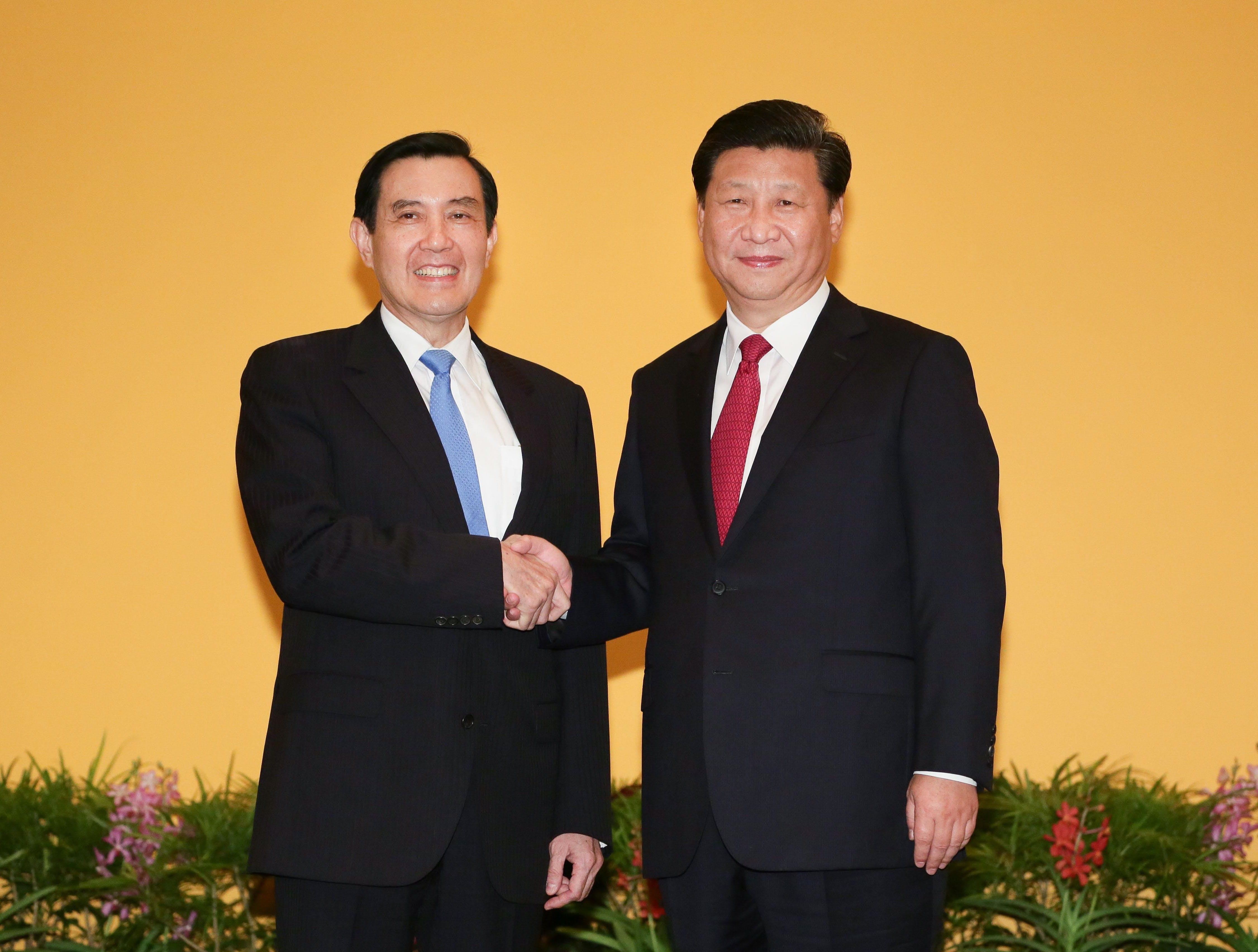
Tsai rejects Xi’s ‘one country, two systems’ proposal
President Tsai Ing-wen (蔡英文) said Taiwan will “never accept” governance under “one country, two systems” as proposed earlier in the day by Chinese President Xi Jinping, saying on Jan. 2 that most Taiwanese are “staunchly opposed to the concept.”
Tsai urged China to embark on a path towards democracy in order to understand the values of Taiwanese citizens, a firm reiteration of her “Four Musts” framework for improved cross-Strait ties detailed in a Tuesday, Jan. 1 speech.

In his Jan. 2 speech, Xi said cross-Strait ties predicated on the so-called “1992 Consensus” could progress to an eventual goal of a “one country, two systems” framework, mentioning the status of Hong Kong and Macau.
But Tsai responded by saying her administration does not accept the “1992 Consensus” as Beijing interprets it as meaning “one China” and “one country, two systems,” rather than maintaining the status quo between China and Taiwan.
Taiwan’s Mainland Affairs Council (MAC) also blasted Xi’s “one country, two systems” remarks, saying in a statement the model had led to a “loss of freedom” in Hong Kong.
Legislators respond to Xi speech
Democratic Progressive Party (DPP) legislator Lee Chun-yi (李俊俋) said Wednesday’s address by Xi Jinping was “mostly a repetition of his previous remarks and was uninnovative,” according to the Taipei Times.
Lee said China “would only push Taiwanese further away” by saying Taiwan is a part of its territory. “We are a peace-loving and democratic people, and while we do want to engage in exchanges with China, at the very least they should respect our will,” he said.
Kuomintang (KMT) caucus secretary-general William Tseng (曾銘宗) said China “should have less prerequisites” to collaborate, but also said the DPP “should be more flexible in terms of its ideological stance, so that both can explore more creative solutions,” per the Taipei Times.
Tseng also said the “1992 Consensus” had been adhered to by former president Ma Ying-jeou (馬英九) despite “each side having its own interpretation.”
New Power Party (NPP) chairman Huang Kuo-chang (黃國昌) said on Facebook the “one China” principle should not be a prerequisite to cross-Strait exchanges and called on Xi to engage with Taiwanese political actors in an “open, transparent and equal manner.”

Han Kuo-yu wants trade and economic cooperation with China
Kaohsiung mayor Han Kuo-yu (韓國瑜) said he wants to establish cooperation on trade and economic matters with China while avoiding exchanges related to military, diplomacy or national defense.
In Tsai Ing-wen’s “Four Musts” speech on Tuesday, she explicitly said her administration was open to such exchanges, but that any negotiations between Taiwan and China must occur between government or government-authorized agencies.
Han, who broke the DPP’s 20-year hold on Kaohsiung by campaigning on a platform of cooperation between Kaohsiung and China, said the city wanted to focus on matters that would improve people’s well-being, adding that other local government heads were considering joining Kaohsiung in advocating for cross-Strait exchanges.
Local leaders have recently touted the municipal-level exchange model with China, pioneered by Taipei mayor Ko Wen-je (柯文哲).
Read More: OPINION: Watch for KMT City-to-City Exchanges Between Taiwan and China

Investigators suspects Chinese hackers in attack
Taiwan’s Investigation Bureau said it suspects Chinese hackers in an August 2018 cyberattack on the Taipei Department of Health’s information systems.
In the attack, the health department reported that over 2.98 million pieces of personal information belonging to Taipei residents had been stolen, and that hackers had accessed systems including a “health cloud” to manage individual dementia cases.
The Investigation Bureau said it has notified the FBI in the United States of the attacks and is attempting to help international judicial organizations to track the location of the hackers. The bureau also said it has ruled out ordinary Chinese internet users as suspects.
Police questioned over sex business bribery
The Investigation Bureau and Taipei prosecutors carried out raids yesterday and questioned four police officials, two nightclub owners and a witness, part of a larger probe into the alleged bribery of police by those in Taipei’s underground sex business.
The raids were conducted in conjunction with human trafficking operations reportedly uncovered by investigators in which women from China and Southeast Asia were smuggled into Taiwan to work as prostitutes, per the Taipei Times.
Some women allegedly had their passports and identification documents seized by handlers or business owners and were forced to work under indentured contracts, according to prosecutors.
Prosecutors said four officials in Taipei’s Zhongshan District, which contains a handful of seedy establishments around Zhongshan N. Road and Linsen N. Road, allegedly received bribes from two proprietors of illegal sex trade establishments between 2011 and 2014.
Read More: Xi Calls Taiwan Independence 'Dead End,' Touts Success in 'Frustrating' Efforts
Editor: Nick Aspinwall (@Nick1Aspinwall)
If you enjoyed this article and want to receive more like it in your news feed, please be sure to like our Facebook page below.







